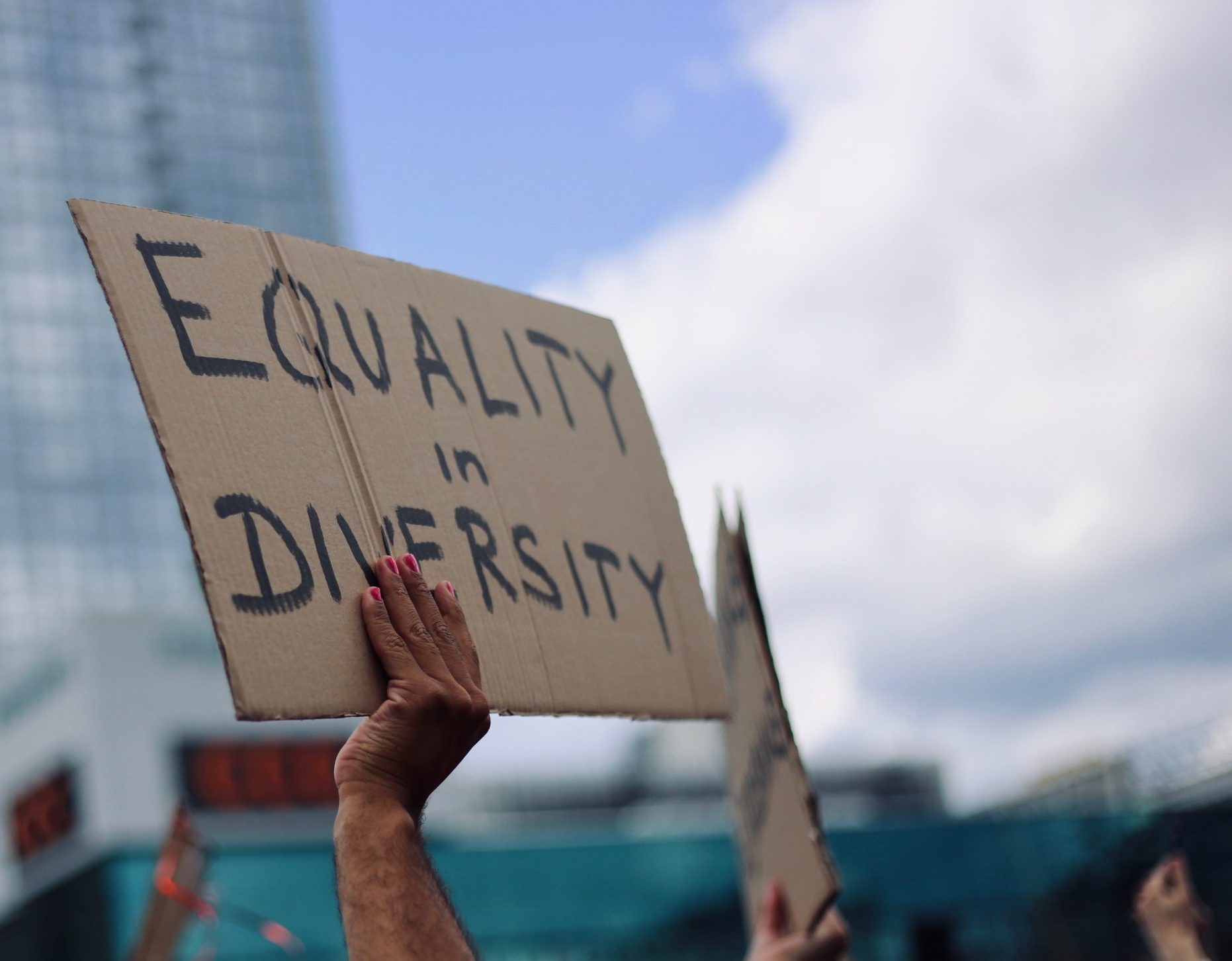Equality, diversity and inclusion are at the heart of who we are at the TLC group.
Our Equality, Diversity and Inclusion Strategy is to be implemented over a four-year period from 2021 to 2025.
It informs all organisational decisions we make and all actions we take.
It also ensures the services we deliver are inclusive, affirmative and fully accessible to the communities we serve.
You can access a complete copy of our strategy at the bottom of this page.
Our Strategic Approach
Our EDI strategy includes four specific objectives:
Embedding: to embed equality, diversity and inclusion within the fabric of our organisation and ensure each is a tenet to all governing decisions made.
Representation: to ensure as much as possible that our workforce remains as diverse as the communities we serve, and our provisions are shaped by the people we support. The voices of our clients are fundamental to how we design and adapt our services.
Affirmation: to ensure the services we deliver promote inclusivity and are affirming to the people who use them.
Adaptation: to learn and grow from the feedback our people provide and always make adjustments that can better our service delivery and organisational development.
Our Actions
We’ve guaranteed to take all necessary actions to achieve the objectives listed above.
Our Group actions include:
- Monitoring and reporting on the diversity of the people we support.
- Working alongside and in partnership with a broad range of organisations to ensure our programmes meet the specific needs of individual communities.
- Learning the barriers to engagement with TLC: Talk, Listen, Change Group for under-represented groups.
- Working collaboratively with individuals and communities to make activities and services more accessible.
- Ensuring all our work centres the voices of our diverse range of clients and potential clients.
- Training and upskilling staff to increase understanding of how to promote equality, diversity and inclusion.
- Encouraging reflection and discussion on equality, diversity and inclusion across the whole organisation.
- Actively supporting positive change in external networks and partnerships, locally and nationally, to promote equality, diversity and inclusion.
Additionally, we are continuing to promote a data collection improvement plan that was developed in 2021 following the discovery that collection rates for certain data categories were too low to accurately portray the diversity of our client base.
The proportion of missing data in each quarter for our counselling services can be viewed below.
| Counselling | |||||
| Category | % of data missing | ||||
| 21.22 Q1 | 21.22 Q2 | 21.22 Q3 | 21.22 Q4 | 22.23 Q1 | |
| Sexual Orientation | 64% | 66% | 25% | 28% | 35% |
| Gender | 34% | 35% | 9% | 10% | 8% |
| Ethnicity | 43% | 44% | 19% | 14% | 19% |
| Disability | 51% | 50% | 28% | 24% | 22% |
Our Demographics
Based on the client data for counselling we were able to collect between 1 October 2021 and 30 June 2022, we present an overview of our client demographics compared to the overall population demographic of Greater Manchester:
| Sexual Orientation | People TLC work with | Greater Manchester population |
| Heterosexual | 86% | 93% |
| LGBTQ+ | 11% | 4% |
| Prefer not to say | 3% | 3% |
| Gender | People TLC work with | Greater Manchester population |
| Female | 67% | 51% |
| Male | 32% | 49% |
| Other gender | 1% | |
| Prefer not to say | 0% | |
| Ethnicity | People TLC work with | Greater Manchester population |
| White | 83% | 90.20% |
| Asian | 7% | 6.29% |
| Mixed | 1.60% | |
| Black | 6% | 1.40% |
| Other | 4% | 0.60% |
| Disability | People TLC work with | Greater Manchester population [i] |
| Living with a disability | 30% | 19% |
[i] TLC collate more detailed data on an individual’s main disability, however no comparable data could be sourced at the Greater Manchester level.
An analysis of this data suggests we are not inadvertently excluding anyone within these demographics from our services, though we recognise that there are existing accessibility limitations.
Despite this, we recognise accessibility limitations and commit to the following actions over the next 18 months.
Our Commitments
In order to overcome some of the accessibility limitations we have noted, we commit to reviewing our progress on the following tasks at the dates stated:
December 2022:
- Include consideration of accessibility issues when reviewing delivery model for counselling in terms of virtual and face-to-face delivery.
July 2023:
- Review our website and all external communications to reduce accessibility barriers.
- Continue to build referral pathways with diverse organisations.
- Work with external networks to better understand if Greater Manchester total population demographics are the best comparison tool for people who would benefit from counselling.
Per quarter:
- Continue to monitor demographic collection rates and implement any improvement plans as necessary.
- Reflect on work planned and delivered to increase client voice and ensure input is representative of the diverse communities we serve.
